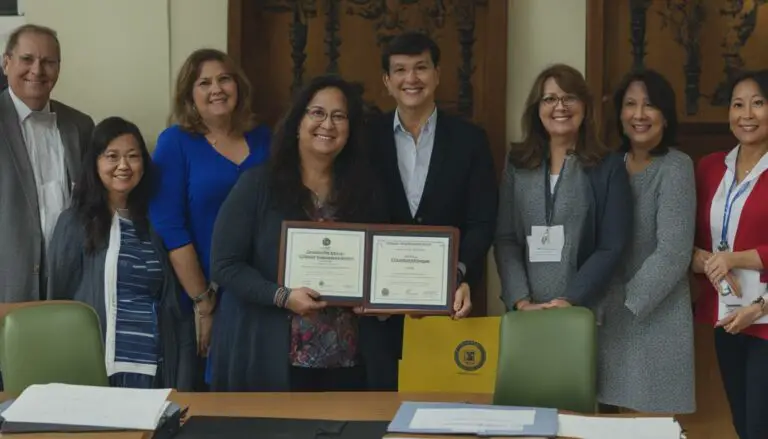Can IGCSE Students Appear for IIT? A Clear Answer to Your Question
IGCSE students aspiring to study engineering in India often wonder whether they can attend the Indian Institutes of Technology (IIT) entrance exams.
IITs are among India’s most prestigious engineering institutions, and admission to these colleges is highly competitive.
The eligibility criteria for IIT entrance exams are set by the Joint Entrance Examination (JEE) board, and students from different educational boards may have additional requirements to meet. This article aims to answer the question: Can IGCSE students appear for IIT?
The IGCSE, a famous international educational board, offers a diverse range of subjects globally. However, it is not accepted for admission to Indian colleges, including IITs.
To be eligible for IIT entrance exams, students must complete their 10+2 education from a recognized Indian or foreign board. Recognized boards in India include CBSE and CISCE.
However, this does not mean that IGCSE students cannot apply to IITs. IGCSE students wishing to study engineering in India can appear for the JEE Main and Advanced exams, qualifying for IITs.
Students must pass the 10+2 exam with Physics, Chemistry, and Mathematics as compulsory subjects to be eligible for these exams.
IGCSE students also require equivalence certificates from the Association of Indian Universities (AIU) to demonstrate the equivalence of their qualifications with Indian students.
Understanding IGCSE and IIT
IGCSE is a globally recognized curriculum Cambridge International offers.
It is designed to provide students with a broad and balanced education across various subjects. The IGCSE curriculum fosters critical thinking and textual knowledge in a two-year program for grades 9 and 10.
On the other hand, Indian Institutes of Technology (IITs) are among India’s most prestigious higher education institutions. They offer undergraduate courses in engineering and sciences.
🌟 Hey Students! 🚀 Ready for the ultimate experience? Join us on Studentsinside.com's Facebook, YouTube, WhatsApp, and LinkedIn. Click now for tips, fun, and success vibes! 🌈✨ #StudentLife #JoinUs
Securing a spot at IITs is highly competitive, with candidates selected based on their performance in the Joint Entrance Examination (JEE) (Main and Advanced).
IGCSE students aiming for IIT-JEE may seek guidance to ensure their chosen XII equivalent course list meets the eligibility criteria. For this, they should review the requirements outlined by the Association of Indian Universities (AIU).
The AIU recognizes the Cambridge International A Levels as equivalent to the +2 stage qualification of the Indian education system.
Therefore, IGCSE students who have completed their A Levels in physics, chemistry, and mathematics with above 50% marks are eligible for IIT courses.
Students must also take other tests, such as the JEE (Advanced), to be eligible for undergraduate admissions.
It is important to note that IGCSE is a recognized board of education, and its curriculum is structured in a way that helps students develop critical thinking skills and textual knowledge.
However, IGCSE students must meet the eligibility criteria for IIT-JEE and other engineering entrance exams. They must also be aware of these exams’ syllabus and exam patterns and prepare accordingly.
Eligibility Criteria for IIT Admissions
Eligibility for admission to the Indian Institutes of Technology requires meeting specific criteria.
Here are some of the general requirements for IIT JEE (Joint Entrance Examination) and specific eligibility criteria for IGCSE students:
General Requirements for IIT JEE
To be eligible for IIT JEE, candidates must have completed their 10+2 stage qualification from a recognized board of education. They must have studied Physics, Chemistry, and Mathematics as core subjects in their curriculum.
Candidates must also obtain at least 75% aggregate marks in their qualifying examination or be in the top 20 percentile of their state education board.
Specific Eligibility Criteria for IGCSE Students
IGCSE students can also appear for IIT JEE if they meet the following criteria:
- They must have passed their +2 stage qualification with Physics, Chemistry, and Mathematics as core subjects.
- To qualify, they must attain at least 60% marks in their prior examination.
- They must have qualified for JEE (Main) and JEE (Advanced) exams.
IGCSE students must note that they are not eligible for the medical entrance exam (AIPMT) and must do extra preparation to meet the eligibility criteria for IIT JEE.
Entrance Exams for IIT Admissions
Candidates must qualify for JEE (Main) and JEE (Advanced) exams to be eligible for undergraduate admissions to IITs. JEE (Main) is a nationwide exam by NTA, while rotating IITs conduct JEE (Advanced).
Bachelor Degree Programmes
IITs offer Bachelor’s degree programs in engineering and technology. Candidates who clear the JEE (Advanced) exam are eligible for admission to these programs. The IITs also offer foreign quota seats for international students.
Engineering Entrance Exams
Apart from IIT JEE, other engineering entrance exams are conducted by various institutions and universities in India. However, IITs are considered the most prestigious engineering institutions in the country.
Higher Education Institutions
Apart from IITs, other higher education institutions in India offer engineering courses. However, IITs have a better reputation and are preferred by most students.
Challenges for IGCSE Students Applying to IIT
IGCSE students face several challenges when applying to IITs in India. These challenges are due to the differences between the IGCSE and Indian curriculum, language proficiency, and eligibility criteria for admission into IITs.
Differences between IGCSE and Indian Curriculum
The IGCSE curriculum is designed to be globally relevant and recognized. However, it differs from the Indian curriculum in content, structure, and evaluation.
The Indian curriculum focuses more on rote learning and theoretical knowledge, whereas the IGCSE curriculum emphasizes analytical thinking, creativity, and practical skills. This difference in the curriculum can make it challenging for IGCSE students to adapt to the Indian system.
Language Proficiency
Another challenge for IGCSE students is language proficiency. Most IITs conduct their entrance exams in English, which can be a barrier for students who need to be fluent in the language.
IGCSE students may have studied English as a second language, but they may need to be proficient enough to understand complex technical terms in the entrance exams.
Eligibility Criteria for Admission into IITs
To be eligible for IITs, students must have completed their Class XII from a recognized board with Physics, Chemistry, and Mathematics as core subjects.
IGCSE students must have completed their +2 stage qualification with an equivalent grade to be eligible for admission. However, IGCSE students may not be familiar with the Indian grading system, making it difficult to determine their eligibility.
Extra Preparation
IGCSE students may need extra preparation to meet the eligibility criteria for admission into IITs. They may need to take additional courses in Physics, Chemistry, and Mathematics to meet the requirements of the Indian curriculum.
They may also need to prepare for the entrance exams, such as JEE (Main), an all-India level examination for undergraduate admissions into IITs.
Foreign Quota
IITs reserve a certain percentage of seats for international students who meet the eligibility criteria. However, the competition for these seats is high, and IGCSE students may need to compete with students from other countries.
They may also need to meet additional requirements, such as a bachelor’s degree in a relevant field, to be eligible for admission through the foreign quota.
Preparing for IIT JEE as an IGCSE Student
IGCSE students aspiring for engineering or medical courses in India often question whether they can take the IIT JEE or NEET exams. Although IGCSE is a recognized board in India, admission criteria for IITs and other top engineering colleges are stringent.
Here are some tips for IGCSE students who aspire to crack IIT JEE:
Recommended Study Resources
IGCSE students need a strong foundation in Maths, Physics, and Chemistry. They should refer to the IIT JEE syllabus and study materials provided by the exam boards. Some popular study resources for IIT JEE preparation are:
- NCERT textbooks
- Resonance DLP (Distance Learning Program)
- FIITJEE
- Allen Career Institute
- Aakash Institute
Role of Coaching Centers and Choosing the Right Institute
Joining a coaching center can benefit IGCSE students as it helps them better understand the concepts and provides practical training.
However, choosing the right coaching institute that suits their learning style and requirements is crucial. Considerations for selecting a coaching center include:
- Faculty expertise and experience
- Course curriculum and study materials
- Infrastructure and facilities
- Success rate and track record
Extra Preparation
Apart from regular studies, IGCSE students can also undertake additional preparation to improve their chances of cracking IIT JEE. Some tips for extra practice are:
- Preparing for exams by solving previous year’s question papers and mock tests is an effective strategy.
- Attending workshops and seminars on IIT JEE preparation
- Engaging in IIT JEE online forums and groups.
- Improving their practical skills through hands-on projects and experiments
Admission and Eligibility Criteria
To qualify for IIT JEE, IGCSE students must finish their 10+2 education with compulsory subjects: Physics, Chemistry, and Mathematics.
They must achieve a minimum of 75% in their A levels or equivalent exams. Furthermore, they must clear the JEE (Main) and JEE (Advanced) tests for admission to top engineering colleges in India.
FAQs
Can NRI IGCSE Students Apply for IIT?
NRI students who finished their 10+2 education from the IGCSE Board can apply for IIT. They must meet all the qualifying criteria for JEE Main and JEE Advanced, including age, appearance, and performance in Grade XII (or equivalent) exams.
Reserved Seats for IGCSE Students in IIT?
There is no reserved quota for IGCSE students in IITs. The admission process for IGCSE students is the same as for other students. IGCSE students must qualify for JEE Main and JEE Advanced to secure admission to IITs.
Available Scholarships for IGCSE Students in IIT
Various scholarships are available for IGCSE students who wish to pursue undergraduate admissions in IITs. Some of the scholarships available are:
- National Talent Search Examination (NTSE) Scholarship
- Kishore Vaigyanik Protsahan Yojana (KVPY) Scholarship
- INSPIRE Scholarship
- Indian Oil Scholarship
- Jindal Scholarship
IGCSE students can also apply for scholarships from the Indian government and private organizations.
Conclusion
In conclusion, IGCSE students can apply for IITs, and the admission process is the same for other students. There is no reserved quota for IGCSE students in IITs, but various scholarships are available for IGCSE students who wish to pursue undergraduate admissions in IITs.








